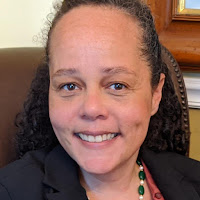 |
| #IStandWithUkraine |
On July 27, the European Union (EU) General Court upheld a continental broadcast ban on Russia Today (RT).
The EU Council promulgated the ban in March 2022. The Council accused the Russian Federation of channeling propaganda through Russian-funded but purportedly "autonomous" RT in furtherance of a "strategy of destabilisation" of European countries by "gravely distorting and manipulating facts."
The regulation asserted that "propaganda has repeatedly and consistently targeted European political parties, especially during election periods, as well as targeting civil society, asylum seekers, Russian ethnic minorities, gender minorities, and the functioning of democratic institutions." RT agents are allowed to continue reporting in the EU through research and interviews.
By "broadcast," the regulation is not talking only airwaves. The
ban purports to apply across media outlets: "cable, satellite, IP-TV,
internet service providers, internet video-sharing platforms or
applications."
I'm Team Ukraine, but the broadcast ban struck me as a curious development. It sets a troubling "kill the messenger" precedent and seems to conclude that the John Stuart Mill "truth will out" premise is hifalutin hooey.
I'm actually OK with that conclusion. When I teach free speech to students in tort, constitutional, or information law classes, I make a point of demonstrating the many flaws of marketplace theory in the real world. But closing the book on the theory as a matter of supranational regulation is an unsettling further step.
Similarly, it must be conceded that war propaganda is efficacious, notwithstanding its truth or falsity. Research and experience have confirmed that concession time and again since Edward Bernays published his classic treatment, Propaganda, in 1928. I read Bernays for a seminar in journalism school in the wake of the fall of the Berlin Wall. That study first interested me to the confounding problem of expressive liberties in wartime.
In its July 27 judgment, the Grand Chamber of the General Court navigated these murky waters to conclude that the broadcast ban justifiably impinged on the freedom of expression. In the challenge by RT France, the Council adduced evidence to satisfy the court that RT was in fact a mouthpiece for Russian antagonism to European security. Conducting the necessity and proportionality analysis of European free speech law, long developed by the European Court of Human Rights, the general court concluded that the ban on RT appropriately furthered the twin aims of preserving order in the EU and abating the attack on Ukraine.
The court took pains to describe the RT ban consistently as temporary and to emphasize the context of Russian military aggression, thus signaling that the ruling is grounded heavily in extraordinary circumstances and has limited precedential value.
For therein lies the hazard of effectively suspending civil liberties in a time of exigency but undeclared war. Western EU ministers must be mindful that their critical populist adversaries in Hungary and Poland have restricted media freedom in the name of public order. Proceed down the slippery slope: Should we ban World Cup 2022 coverage by Qatar-funded Al Jazeera?
Characteristically, Russia answered the EU court ruling with a threat of retaliatory restrictions on western media in Russia. But on both sides, media bans might be so much posturing anyway.
 |
RT.com via VPN based in Dublin
|
The actual efficacy of the ban is doubtful, if for no other reason than the internet's
famous resilience to censorship. In a
study published in July, the
Institute for Strategic Dialogue found that RT content was still reaching European consumers through alternative domain names and mirror websites.
It might not be even that difficult to find RT. Using my Dublin-based VPN, I just now accessed RT.com directly and through a Google.ie search without impediment.
Today, August 24, marks six months since the invasion. The International Law Section of the American Bar Association (April) is organizing a social media campaign to maintain the visibility of the war in Ukraine. Lawyers are asked to post the Ukraine flag on LinkedIn and Twitter with the hashtag #IStandWithUkraine and tags @American Bar Association International Law Section and @Ukrainian Bar Association on LinkedIn and @ABAInternatl and @Association_UBA on Twitter.





.jpg)

